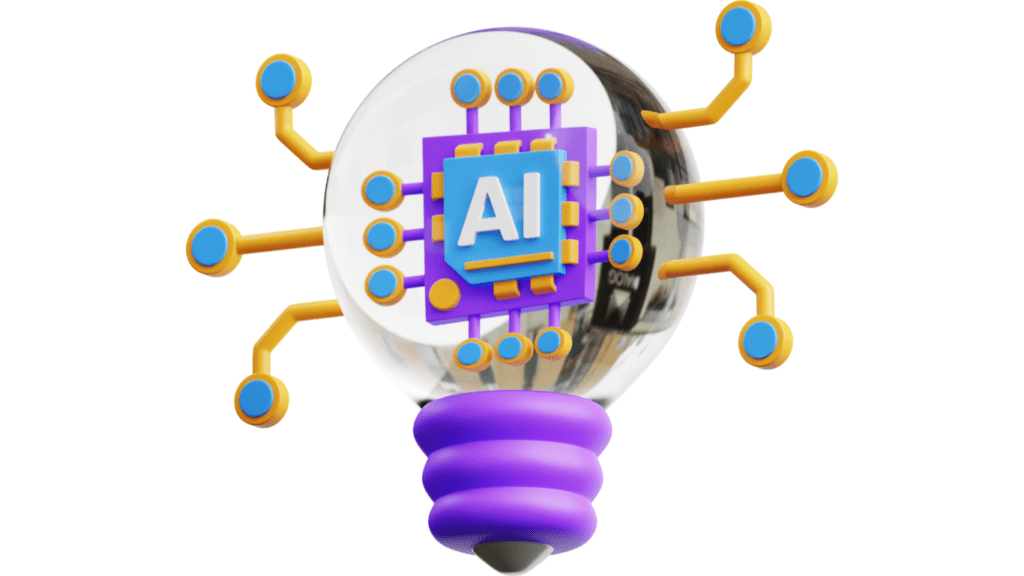The Role of AI and Robotics in the Industrial Revolution
AI and robotics are redefining the industrial landscape. Startups are leveraging these technologies to transform how industries function, driving progress in unprecedented ways.
Transformative Impact on Industries
AI and robotics are reshaping manufacturing, healthcare, logistics, and agriculture. In manufacturing, AI-powered predictive maintenance reduces downtime, while robotics automates assembly lines for higher precision. Startups in healthcare integrate AI for diagnostics, accelerating disease detection with machine learning algorithms like those used for pathogenesis. Logistics benefit from autonomous robots optimizing warehouse operations and last-mile delivery. Modern agricultural startups employ robotic harvesters and AI-driven climate analysis, enhancing yield efficiency.
Bridging Automation and Intelligence
Startups are combining robotics’ physical capabilities with AI’s decision-making power. AI systems utilize robotics for tasks like self-navigation, wherein sensor data and machine learning models enable autonomous actions. These technologies enhance adaptive automation, evident in collaborative robots (cobots) supporting complex, human-centric workflows. AI-driven robotics aligns machine intelligence with real-time data, improving both productivity and flexibility across industrial sectors.
Startups Driving Innovation in AI

Ambitious startups are transforming industries with groundbreaking AI solutions. These companies are creating tools and applications that redefine efficiency, decision-making, and collaboration.
Prominent Players in AI Development
Several startups are making significant strides in AI development. OpenAI, known for its advanced language models like ChatGPT, is expanding the boundaries of natural language processing (NLP). Anthropic focuses on AI safety, ensuring responsible development while creating powerful generative AI systems. Meanwhile, Hugging Face simplifies machine-learning implementations with its open-source frameworks, helping developers harness AI capabilities with ease.
In healthcare, Tempus uses AI to analyze clinical and molecular data for personalized cancer treatments. Similarly, PathAI specializes in improving diagnostic accuracy through AI-powered pathology tools. These innovators are tackling complex challenges across multiple sectors.
Breakthroughs in Machine Learning and Automation
AI startups are achieving impressive advancements in machine learning and automation. DeepMind’s AlphaFold has revolutionized protein structure prediction, accelerating progress in medicine and biotechnology. On the automation front, Vicarious develops AI that mimics human brain processes to optimize robotics applications, particularly in manufacturing.
Automation-enabling startups like UiPath are reshaping workflows through robotic process automation (RPA). Their platforms automate repetitive tasks, boosting productivity and enabling businesses to focus on strategic goals. Startups such as Covariant combine reinforcement learning and computer vision to enhance robotics precision in warehousing and logistics. These breakthroughs demonstrate the potential of AI to transform operational ecosystems.
Robotics Startups Pioneering Change
I analyze how robotics startups are redefining industries by leveraging innovative technologies. These startups are creating specialized solutions that enhance productivity, reduce costs, and open up new possibilities.
Advancements in Manufacturing Robotics
I see startups focusing on automating complex manufacturing processes. Companies like Bright Machines are using microfactories to integrate robotics and AI for modular production systems. Built Robotics develops autonomous construction machines to streamline labor-intensive tasks. Pathfinder Technologies combines robotics with machine vision to create automated welding systems, improving precision and reducing human errors.
These advancements optimize tasks like assembly, quality inspection, and material handling. For example, companies adapt robotics for predictive maintenance in factories, ensuring minimal downtime. Collaborative robots (cobots) from startups such as Universal Robots are equipping workers with tools to perform repetitive tasks, enhancing operational efficiency while maintaining workforce relevance.
Emerging Trends in Service Robotics
Robotics startups are disrupting service sectors by designing systems to perform human-centric tasks. For instance, Starship Technologies has developed autonomous delivery robots for urban areas, reducing last-mile delivery costs. Miso Robotics focuses on robotics for food preparation in commercial kitchens, automating repetitive kitchen processes to improve meal consistency. Diligent Robotics introduces AI-driven care robots for hospitals, assisting healthcare workers with non-critical tasks like equipment transportation.
Robotic assistants are expanding into consumer-focused products. Companies such as Anki (now part of Digital Dream Labs) offer versatile robots combining artificial intelligence and entertainment, making robotics accessible for personal use. Advancements in service robotics, driven by these startups, aim to fill gaps in sectors like education, retail, and hospitality.
Challenges Faced by AI and Robotics Startups
AI and robotics startups are driving innovation but encounter significant challenges. These hurdles can hinder their development and limit their impact across industries.
Funding and Resource Constraints
I see many startups struggling to secure adequate funding and resources for sustained growth
- . Developing advanced AI models and robotics systems demands substantial investment in research, infrastructure, and skilled professionals.
- High costs for hardware components, such as sensors and actuators, add another financial burden.
- Competing for venture capital with more established companies further exacerbates these issues, slowing innovation.
Ethical and Regulatory Issues
Navigating ethical concerns and regulatory frameworks is a persistent challenge for startups.
- Ensuring accountability and transparency in AI decision-making processes requires strict compliance with global ethical standards.
- Startups often face complex approval processes due to varied regulations across regions, particularly for autonomous systems like drones or self-driving vehicles, which encounter safety and legal scrutiny.
- Misalignment with societal concerns, including job displacement fears or privacy risks, can also erode public trust.
The Future of AI and Robotics in Industry
AI and robotics stand poised to redefine industrial landscapes, sparking innovations that extend across sectors globally. Startups, leveraging cutting-edge technology, are playing a crucial role in shaping this transformative future.
Potential for Global Economic Transformation
AI and robotics are driving economic growth by improving efficiency, reducing operational costs, and enabling entirely new business models. For example, manufacturers adopting AI-powered automation have cut production time by 30% and reduced material waste significantly. In agriculture, robotic systems with AI integration are enhancing yield predictions and optimizing planting patterns, boosting productivity and reducing environmental impact. These advances are fostering new markets and altering supply chains, creating jobs while transforming traditional roles. Estimates from the World Economic Forum suggest that by 2025, automation could displace 85 million jobs but generate 97 million new roles that align with emerging technologies, reflecting a net positive impact.
Collaboration Between Startups and Established Companies
Partnerships between startups and established firms are accelerating the implementation of AI and robotics. Startups bring agility and innovation, while established companies offer experience and resources. For instance, Bright Machines collaborates with traditional manufacturers to implement automated assembly lines, achieving scalable precision and cost efficiency. Similarly, robotics startups like Covariant are working with e-commerce giants to enhance warehouse operations using AI-powered robotic sorting systems. These partnerships not only improve operational efficiencies but also expedite the adoption of transformative technologies across industries. Data from PitchBook shows that collaborations account for over 60% of robotics-related investments globally, underscoring their importance in advancing the industrial revolution.



